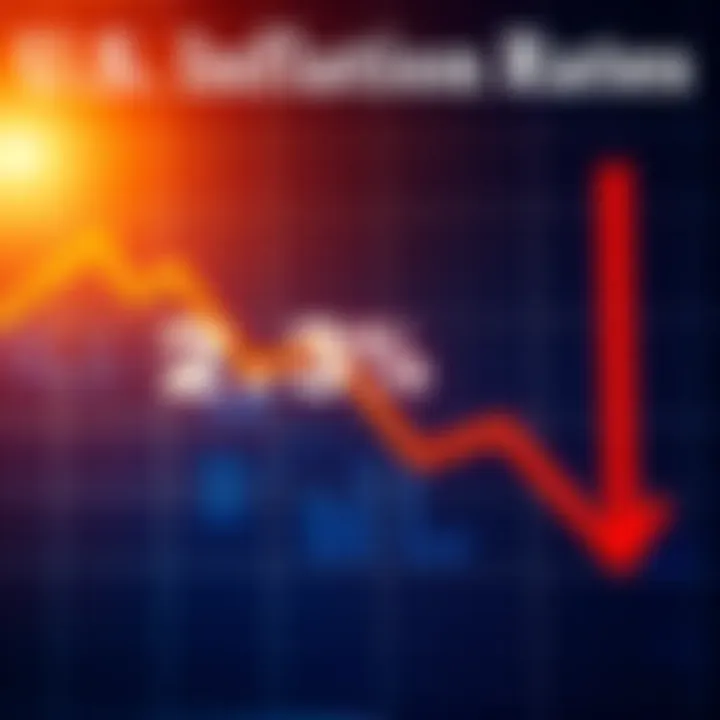Inflation Rate Drops to 2.3% | Positive Shift Sparks Optimism in Crypto
Edited By
Aisha Khatun

The annual inflation rate slid to 2.3% in April, down from 2.8% in March, surprising many experts who expected a higher figure. This shift raises hopes for economic balance and kicks off discussions around potential impacts on the crypto market.
Context of the Drop
Lower inflation numbers are generally seen as a positive economic signal. However, some grocery shoppers have pointed out that prices at their local stores remain high, highlighting the disconnect between inflation data and everyday expenses. Amid these changes, conversations about the future of cryptocurrencies have intensified.
User Reactions and Sentiments
Users on various forums are split in their reactions, with several expressing optimism about the market:
“Everything is aligning for the bulls to be activated.”
“Better than expected. Send it 🚀 🍩”
However, challenges remain. Concerns about ongoing global conflicts overshadow the good news, with one user stating, “Hope the wars around the world ends soon. No inflations then to deal with at all.”
Stock Market and Crypto Correlation
With stocks also on the rise, some users noted that a drop in inflation could lead to increased investment in cryptocurrencies. “Stocks up, cryptos up, inflation down, eggs down. Quick give me something to complain about,” a user jested, showing a blend of sarcasm and positive outlook.
Insights from Experts
Experts suggest that this change might provide the Federal Reserve with some breathing room, which could lead to more favorable policy decisions for various assets, including crypto.
"Fed gets a breather," one analyst remarked, hinting at potential shifts in interest rates.
Takeaways from the Reaction
💡 Inflation down to 2.3%—better than expected, causing excitement.
📈 Stocks and cryptos climbing—investors eye opportunities.
📅 Global concerns—ongoing turmoil may temper enthusiasm.
As inflation continues to shift, economic strategies and personal finances will remain hot topics. The interplay between inflation data and crypto investment strategies is clearly a focal point for many looking ahead.
What Lies Ahead for Crypto Investments
With inflation now at 2.3%, analysts predict more favorable conditions for both traditional markets and cryptocurrencies in the coming months. An estimated 60% of financial experts believe the Federal Reserve may reconsider their interest rate approach, possibly leading to a lower rate environment that encourages more investment in riskier assets like crypto. As consumer confidence improves, we could see a notable uptick in crypto trading volumes, with predictions suggesting over a 30% increase by mid-year. This shifting economic landscape may bolster the sentiment around digital currencies, but ongoing global conflicts could act as a counterbalance, introducing more volatility than anticipated.
A Historical Echo of Economic Shifts
Looking back to the early 1980s, the U.S. faced similar inflation challenges, which forced policymakers to make bold decisions that reshaped the economic landscape. Just as the shift in inflation today brings hope for a positive turn in investments, the post-Volcker era opened the floodgates for innovation in industries that were once stifled. Businesses adapted, technologies like personal computing thrived, and investment patterns transformed forever. This example reminds us that while inflation can be daunting, the resulting changes often lead to unexpected growth avenues, urging investors not to overlook potential developments in the crypto space.
